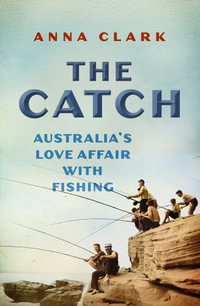What is real and what is not, how to preserve history and self in a changing landscape, and how to build roots where the ground does not accept them.
Easy Victims to the Charitable Deceptions of Nostalgiagrapples with the tensions associated with being exiled to home, with the environment and gentrification when there is a lack of land, and what that does to family, history, and family history. It is about the personal islands we all inhabit. Nostalgia is deceptive and seductive. We live in a time of tumult, a time therefore where the past may be, perhaps too easily, romanticized. There is a tendency to fall for these deceptions. Not just our own, but those of the generation before us, as well as the nostalgia of the generations that came before them, that they fell for. On the small island where this manuscript is largely set, there is such transience and such dependency on the narrative born of tourism that the truth and fiction of a place's history become skewed. As the water rises and the cost of living becomes such that working people and families rooted on the island for years cannot afford to live here, cannot risk staying, the distance to mainland seems lengthened. This is the perspective from which this book wrestles with the tough pull of nostalgia and the questions of what is real and what is not, how to preserve history and self in a changing landscape, and how to build roots where the ground does not accept them.
Industry Reviews
"You can feel the ocean surf eating away the shores of Emily Schulten's over-traversed island. "When space and silence [once] existed ... ." The land is not only being swallowed by the tide, but by the ever-increasing waves of tourists, by big money and a distorted historical narrative. Earnest and hard-won, Emily Schulten's Easy Victims to the Charitable Deceptions of Nostalgia. traverses the few spaces still unpopulated to find the semblance of an affirmation of self. Only (this) much is remaindered in the memory-much of which, itself, is to be questioned. Memory and history have become a blur: "This is how a place becomes a postcard ... a folklore of half-truths." There is loneliness, longing, love, and an attempt to find the self within this last dot of land in an ever-expanding ocean. Is memory simply the residue of embellished folklore? And which of these are other versions of the poet herself? "[Even] the word moves on the page / so that content never remains the same." Desperately heart-felt, brave, a worthy companion on any island."-Marc Vincenz
"I have no trouble ranking Emily Schulten among our most promising younger poets."-B.H. Fairchild
"These are poems of sacrifice and love, of learning how to live in the real world. They offer no easy answers. Emily Schulten is young and energetic and talented. She will leave her mark on American poetry."-David Bottoms
























